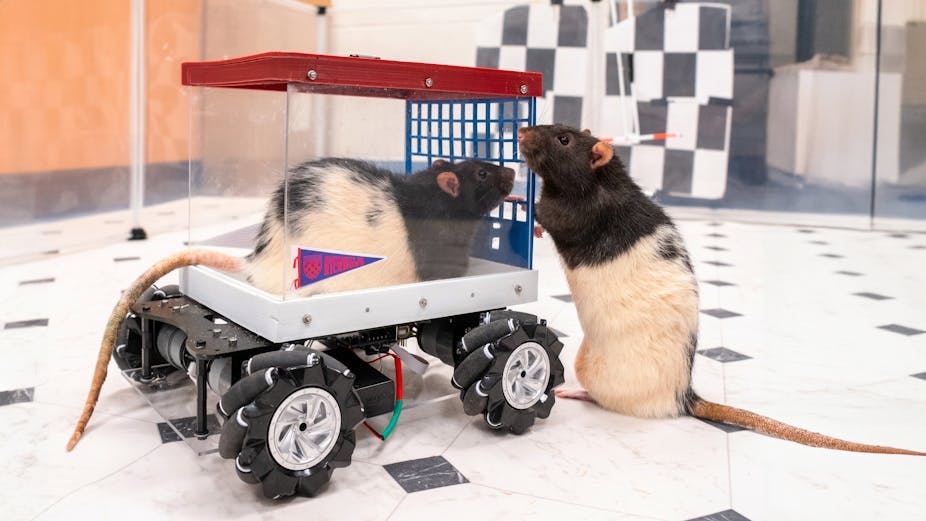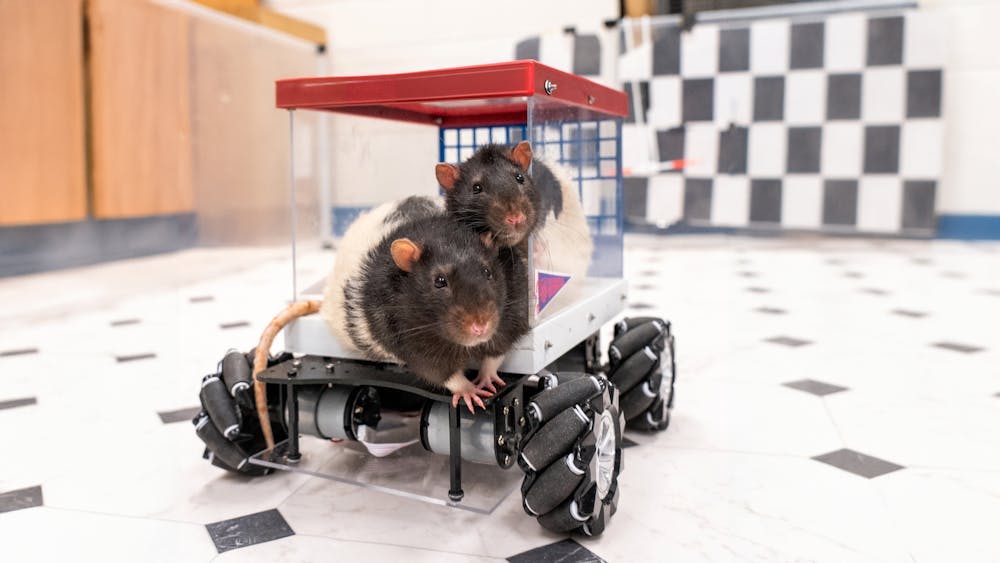Forget the Rat Race, These Dudes Just Wanna Cruise
Back in 2019, Kelly Lambert didn’t set out share the joys of driving with her rat friends. The researcher in behavioral neuroscience at the University of Richmond was primarily interested in understanding more about neuroplasticity—the brain’s ability to grow and adapt in response to learning or experience. When she and her colleagues devised some makeshift little rat cars, the idea was to see whether the rats could and would pilot them to a reward.
“We crafted our first rodent car from a plastic cereal container,” Lambert wrote in a piece published on the site The Conversation. “After trial and error, my colleagues and I found that rats could learn to drive forward by grasping a small wire that acted like a gas pedal. Before long, they were steering with surprising precision to reach a Froot Loop treat.”
A total of 17 rats took part in the experiments. Those that were housed in more stimulating environments with toys and other rats—places that already engaged their brains—seemed to pick up the necessary driving skills better than those living in basic cages.
After publication of the initial results, Lambert further refined the study, to include bespoke rat-operated vehicles—ROVs—built by a robotics professor and his students. From their humble beginnings in poverty-spec Chevettes, the rats now had use of coachbuilt rides kitted out with rat-proof wiring, rat-specific ergonomic levers, and, for some reason, all-terrain tires.
At first, the rats learned basic skills, like simply climbing into the ROVs and pressing a lever. After some practice, however, they began steering their cars toward specific destinations.

“Unexpectedly,” Lambert wrote, “we found that the rats had an intense motivation for their driving training, often jumping into the car and revving the ‘lever engine’ before their vehicle hit the road.”
Anyone who has ever hopped in a car and driven just to drive, with no destination in mind, knows exactly that feeling.
“Were they just eager for a Froot Loop, or anticipating the drive itself? Whatever the case, they appeared to be feeling something positive—perhaps excitement and anticipation.”

Had Lambert uncovered a rat’s ability to experience joy? More specifically, had she tapped into the joy of driving? Since she couldn’t really just ask the little suckers, she and her team devised an alternate method for the rats to arrive at the coveted Froot Loops: they could walk to the treats via a path that was much shorter than the drive route.
“Surprisingly, two of the three rats chose to take the less efficient path of turning away from the reward and running to the car to drive to their Froot Loop destination. This response suggests that the rats enjoy both the journey and the rewarding destination.” Hey, who doesn’t?
Lambert’s unique study sheds an interesting light on a rat’s (and our own) ability to derive joy from getting behind the wheel. “As animals—human or otherwise—navigate the unpredictability of life,” she concludes, “anticipating positive experiences helps drive a persistence to keep searching for life’s rewards.”
Life really is a highway. It’s fascinating to know that we’re not the only ones who want to drive it all night long.



Uh, your tax dollars at work.
Appear to drive better than a Mustang owner leaving a car show.
Goldfish were there first…
https://www.cbc.ca/news/science/goldfish-driving-1.6309485
Oh sure they hit the wall a few times trying to park net to the food but hell, they still drive better than most of the people around where I live.